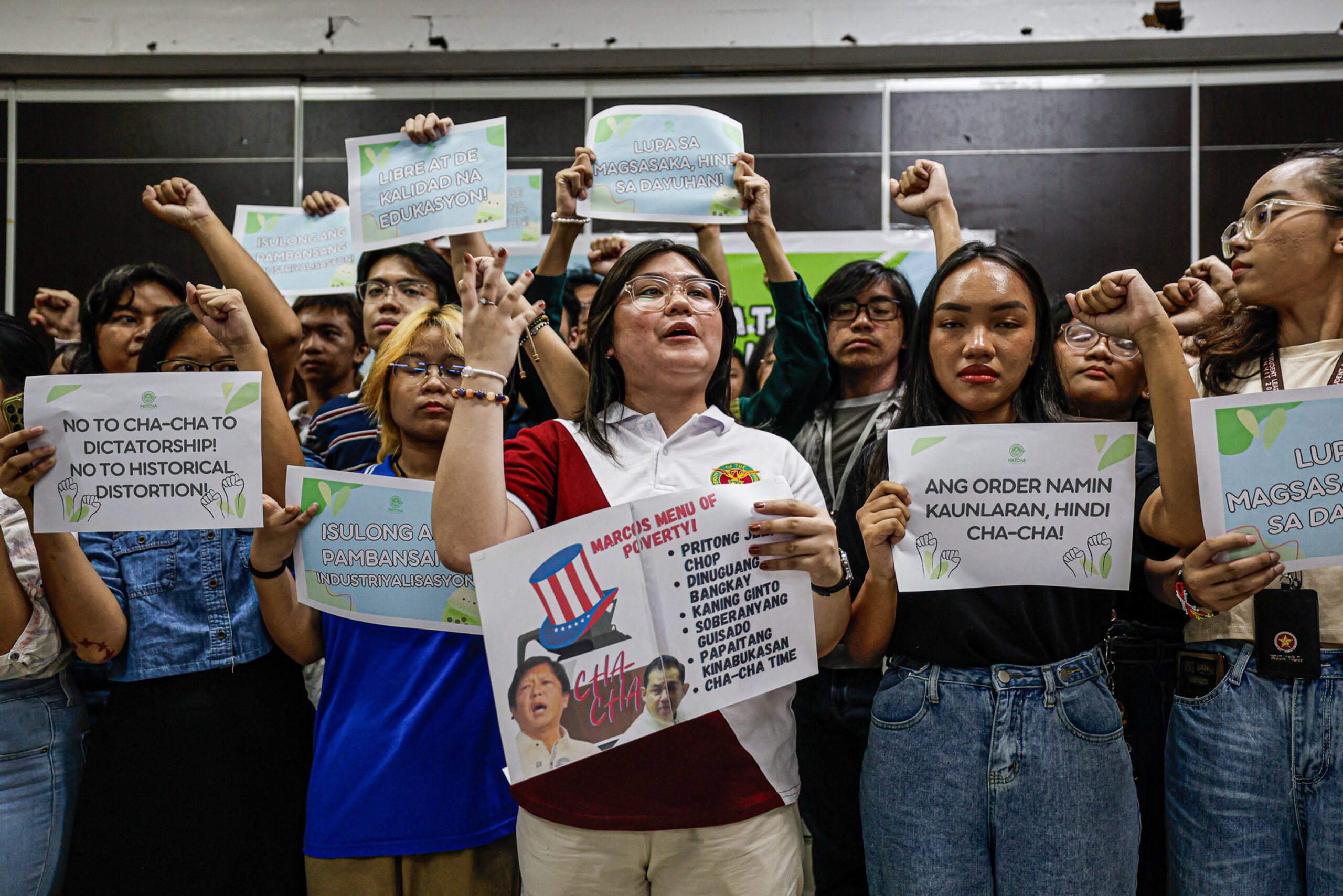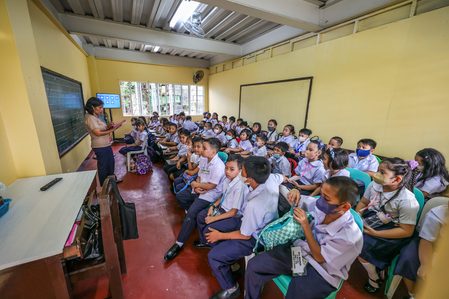SUMMARY
This is AI generated summarization, which may have errors. For context, always refer to the full article.

CEBU, Philippines – Some teacher and student groups in Cebu expressed their opposition to proposed amendments in the 1987 Constitution that would allow full foreign ownership of educational institutions.
“Such a proposal further reinforces the neoliberal ‘users pay’ philosophy which for decades has commercialized the system of education in the country,” the Alliance of Concerned Teachers (ACT) Philippines Cebu said on Wednesday, March 6.
The teachers’ organization warned that once restrictions on foreign ownership in the education sector ease, issues such as tuition fee hikes and “biased revisions” to the curriculum would emerge.
“This means the worsening of historical revisionism as foreign capitalist educators, many of whom could be coming from the country’s former colonial masters, could design curriculum and instruction that would further their neocolonial interests in the country,” their statement read.
The National Union of Students of the Philippines shared similar sentiments, saying the proposed amendments would only intensify foreign influence in Philippine education.
The Department of Education (DepEd) already objected to the proposed amendments during a House deliberation on Resolution of Both Houses (RBH) No. 7 on Monday, March 4.
“The scope and limits of control and administration are put into question, including processes defining who, what, and how education shall be administered. The most basic question is – will it allow foreign entities to teach?” DepEd Undersecretary Omar Alexander Romero said.
On Tuesday, March 5, Senator Sonny Angara said during a Senate sub-committee hearing that the amendments do not intend to open Philippine basic education to foreign investments, only higher, tertiary, technical and vocational education.
“We need more clarity in the language because the intention is not to liberalize basic education,” Angara said.
Learning crisis
For Kabataan Cebu chapter chairperson John Kyle Enero, allowing full foreign ownership of schools would only worsen the existing learning crisis that the country is facing.
To recall, the Philippines placed 77th out of 81 countries in the Program for International Student Assessment (PISA) 2022 rankings for 15-year-old students’ average performances on mathematics, science and reading.
Based on the 2022 rankings of the Program for International Student Assessment, the Philippines is among the nations that produced the lowest proficiency for 15-year-old students in reading, mathematics, and science, placing 77th out of 81 countries.
“As it currently stands, history, culture, language, and other similar civics subjects are already being trimmed down in Filipino-owned schools. Under full foreign ownership, all of these could be removed in favor of more marketable topics,” Enero said.
Enero also criticized Commission on Higher Education (CHED) Chairman Prospero de Vera III for saying that the proposed easing of foreign ownership restrictions on education would improve the global competitiveness of institutions.
“What CHED is actually saying is the government would rather export young, cheap, and docile labor to other transnational corporations and foreign countries, rather than provide quality and accessible education and decent jobs and wages,” Enero said.

Passing the buck
Ryan Dave Ryla, a college lecturer at a private university in Cebu City, told Rappler that opening the education sector to foreign companies would be akin to “passing the buck.”
“Instead of opening up the education sector to foreign competition, it would be best for the state to strengthen its public education system,” he said.
Lloyd Manango, vice chairperson of the League of Filipino Students, said during the deliberation on RBH No. 7 on Tuesday that the government has yet to fully utilize options in meeting international education standards.
He argued that if the state really wants to meet international standards, it should put more effort into reaching the UN’s budgeting standards.
“The international standard of the United Nations (UN) for education budgeting is 6% of the country’s gross domestic product (GDP). Although, the budget of DepEd is 16% of the total budget, it is only around 2% of the GDP,” Manango said in a mix of English and Filipino. – Rappler.com
Add a comment
How does this make you feel?












![[Vantage Point] Philippine economic reforms run into headwinds](https://www.rappler.com/tachyon/2024/05/ph-economic-headwind-may-2024.jpg?resize=257%2C257&crop_strategy=attention)
![[In This Economy] A counter-rejoinder in the economic charter change debate](https://www.rappler.com/tachyon/2024/04/TL-counter-rejoinder-apr-20-2024.jpg?resize=257%2C257&crop=267px%2C0px%2C720px%2C720px)

![[OPINION] How can teachers develop a reading habit among learners?](https://www.rappler.com/tachyon/2024/07/imho-reading-habit.jpg?resize=257%2C257&crop_strategy=attention)



There are no comments yet. Add your comment to start the conversation.